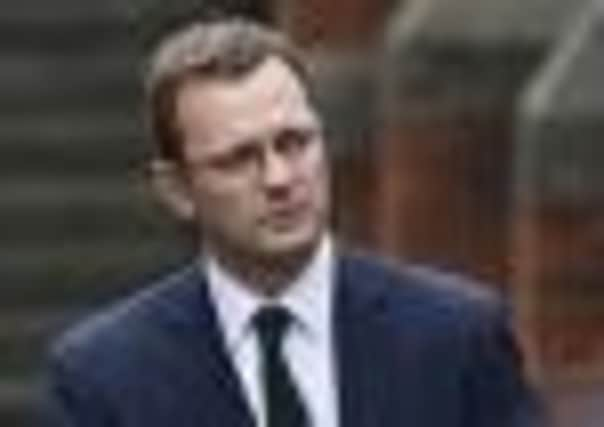Leveson Inquiry: Hunt should have been clear with adviser on BSkyB


• Andy Coulson did not declare News Corp stock
• Lord O’Donnell defends less stringent vetting of former Number 10 communications chief
• DV level ‘would not have gone into enormous detail about phone hacking’
• Hunt under further perssure to resign
Advertisement
Hide AdAdvertisement
Hide AdLord O’Donnell also said he believed David Cameron’s links to Rupert Murdoch’s media empire had been too close.
The comments, in evidence to the Leveson Inquiry, came as Commons Speaker John Bercow demanded Mr Hunt answer questions from MPs over his conduct in the row.
The UK government has previously argued that critics should wait for a full explanation when Mr Hunt makes his own appearance as a witness.
Lord O’Donnell – who retired as Cabinet Secretary at the end of last year – was asked about e-mail exchanges between Mr Hunt’s special adviser Adam Smith and News Corp lobbyist Fred Michel.
Mr Smith resigned last month after admitting that the discussions, which included previews of statements the Secretary of State was due to make to parliament, had gone too far.
“It’s clear in the special advisers’ code (of conduct) that in terms of authorisation ministers should authorise their special advisers as to what they should do, for example with the media,” the peer said. “I would have expected the minister to be clear as to what he thought the special adviser should have been doing.”
He also insisted “all parties” should have been kept informed about the progress of scrutinising the News Corp bid for BSkyB.
He said: “Talking about process is fine, but you should make sure that the same information is passed on to all parties in a case. So fairness is absolutely crucial to what happened.”
Advertisement
Hide AdAdvertisement
Hide AdLord O’Donnell said he had tried to ensure ministers worked through the civil service and maintained a distance from the press, but admitted he had not always been successful.
“I think the Prime Minister himself, the current Prime Minister, has said that he felt his relationships had got too close, and I agree with that.”
Lord O’Donnell was asked about his involvement with Andy Coulson after he became Mr Cameron’s Downing Street director of communications in May 2010. He said Mr Coulson signed a form declaring his financial interests without including £40,000 in News Corp stock.
The inquiry also heard from Tony Blair’s former spin doctor, Alastair Campbell, who admitted that the Labour government realised there was a “real problem” in the relationship between the press and politicians but failed to address it.
“I think there was a political point of pragmatism that Tony Blair would have taken the view that it was not politically sensible,” he said.
Mr Campbell said he did not believe Mr Cameron wanted to set up the Leveson Inquiry.
“I don’t think that David Cameron particularly wants to have to deal with this,” he said. “I don’t think he wanted to set up the inquiry. He had to in the end.”
Meanwhile, former News International chief executive Rebekah Brooks is expected to find out today if she will be charged with perverting the course of justice during the phone-hacking scandal.